Roster of Experts
We work with experts on Loss and Damage and related fields from around the world, each specialising in different areas of policy making, research, law, advocacy, communications and creative practice.
If you would like to get in contact with any of these experts please contact us here:
info [@] lossanddamagecollaboration.org
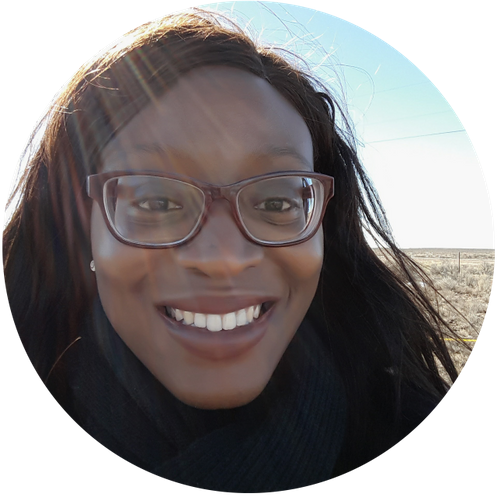
LEIA ACHAMPONG
Leia is a climate justice and women’s rights activist and has a Masters degree in Sustainability Sciences and Policy (MsC) from Maastricht University. With over 10 years experience, Achampong has a background in research, policy analysis and advocacy on climate change issues. Leia’s current research focus is on the best ways to strengthen financial mechanisms to increase the quality and additionality of climate finance. Presently, Leia works at Eurodad on climate finance and climate justice, and engages in the Loss and Damage Collaboration in a personal capacity.

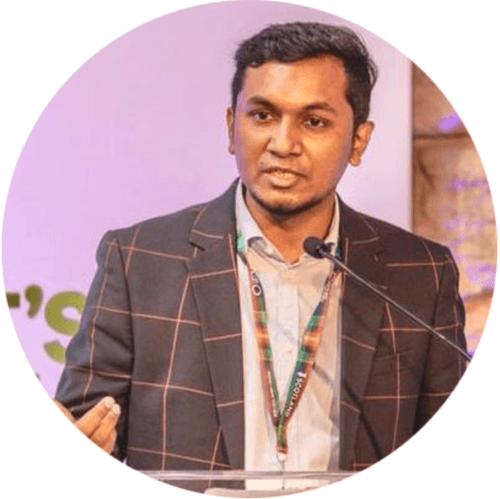
ISTIAKH AHMED
Istiakh is a doctoral student at the School of Public Policy and Urban Affairs at Northeastern University, Boston, USA. Before starting his PhD, he worked as an Advisor - Climate Adaptation, NAP and NDC support programme at GIZ Bangladesh. Earlier He worked at the International Centre for Climate Change and Development (ICCCAD) as a ‘senior programme coordinator’ managing the Loss and Damage programme. He has published several journal articles, book chapters, working papers, research reports, blogs and op-eds on climate change adaptation and loss and damage.

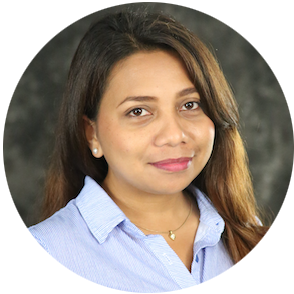
JUSTINA AUREA DA COSTA BELO
Justina is a climate negotiator from Timor-Leste and a national expert on Ozone Depleting Substances (ODS) Verification. She began representing her country in the climate change negotiations under the UNFCCC in late 2019 at COP25 in Madrid. In her role as a negotiator, she supports the Least Developed Countries (LDCs) coordinators on Loss and Damage. In addition, she coordinates the New Generation program under the Climate Leadership Initiative and the L&DC which aims to empower young negotiators from vulnerable developing countries. At home in Timor-Leste, Justina leads the implementation of national programmes under the Montreal Protocol and works closely with both UNEP and UNDP regionally through this role.

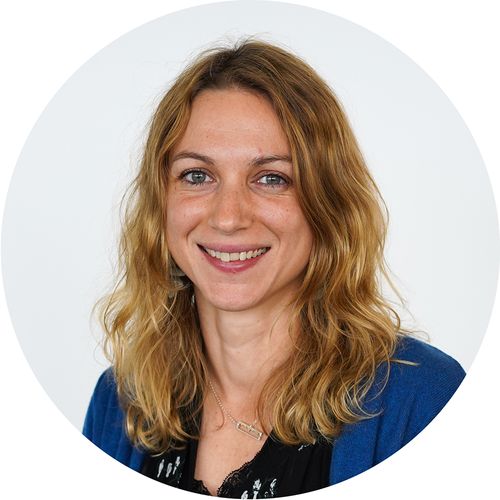
ALICE BAILLAT
Alice is the Policy Adviser at the Internal Displacement Monitoring Centre, where she is in charge of the global policy engagement of IDMC on disaster displacement. Her main area of expertise is on the interconnections between climate change, disasters and human mobility, with a particular interest on the loss and damage associated with displacement. Alice has also experience in conducting research on climate governance, migration and security, and focused her PhD research on the Bangladesh's climate diplomacy. She has published several articles, book chapters, reports and blog pieces on these various topics.

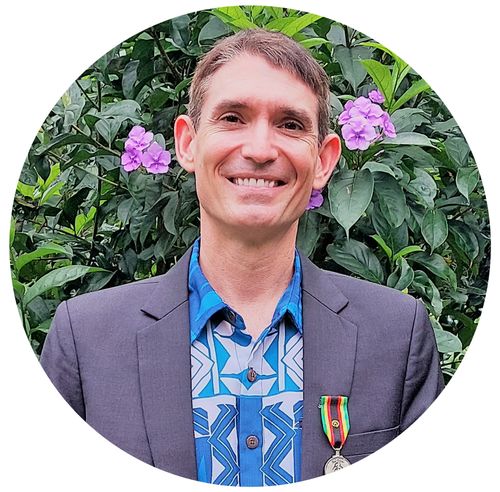
CHRISTOPHER BARTLETT
Dr. Bartlett has been living and working in the Pacific Islands for over two decades, and is currently managing the Government of Vanuatu's Climate Diplomacy program. His extensive work with communities, civil society, private sector and governments in the Pacific have shaped his current climate action interests around climate adaptation, biodiversity, development finance and loss and damage. After being awarded a PhD at James Cook University, he joined Nobel Laureate Elinor Ostrom's lab at Indiana University as a postdoc focusing on global multidimensional resource management problems. Dr. Bartlett has written dozens of climate policy documents, managed the implementation of multiple national climate change projects, and serves as the lead negotiator on Loss & Damage for the Republic of Vanuatu.

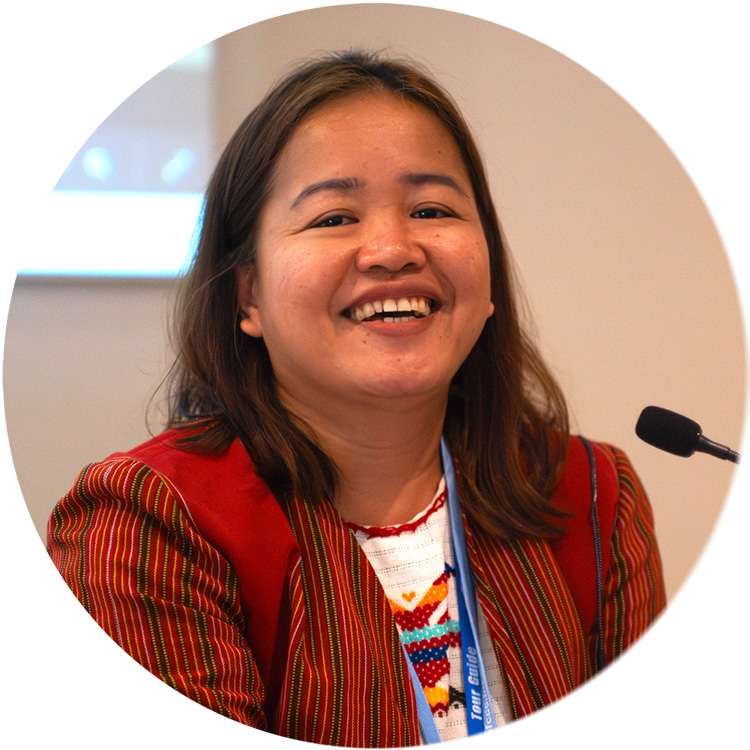
HELEN BIANGALEN-MAGATA
Helen Biangalen-Magata is an Indigenous Kadaclan woman from Mountain Province, Philippines, with a lifelong commitment to advocating for indigenous peoples’ rights, climate justice, and sustainable development. With a strong background in community communication, facilitation, and research, she has contributed significantly to indigenous-led initiatives, policy advocacy, and capacity-building efforts at both national and international levels, including her roles on the Advisory Boards of the Climate Justice Resilience Fund and the Green Climate Fund. Her work focuses on amplifying indigenous voices in climate finance, governance, and human rights, while fostering gender and youth empowerment within her community and beyond. Helen’s extensive experience in project management, research, and advocacy reflects her dedication to advancing indigenous self-determination, climate resilience, and social justice as an Indigenous woman leader committed to transformative change.

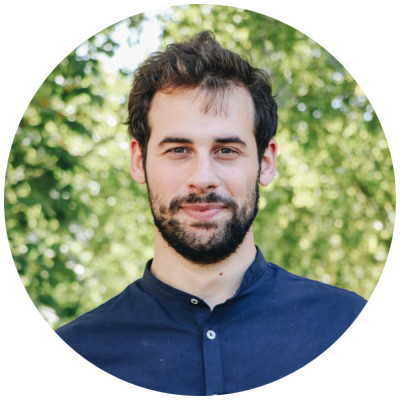
PIERRE CANDELON
Pierre is a specialist in public policies on environment, development, and climate change, with more than 10 years of experience in various settings (public, private, and academia), across different regions of the world. Since 2016, he has been actively involved in the field of climate diplomacy, initially serving in the French delegation, then acting as a strategy coordinator for the Loss and Damage Collaboration, and finally as an advisor within the AOSIS group. He is currently stationed at UNDP but continues to contribute to the work of the Collaboration through his research, focusing primarily on governance mechanisms for Loss & Damage, as well as exploring the intricate relationship between international advocacy strategies and their tangible effects on communities, aiming to foster innovative forms of inter-institutional diplomacy and effective program management.

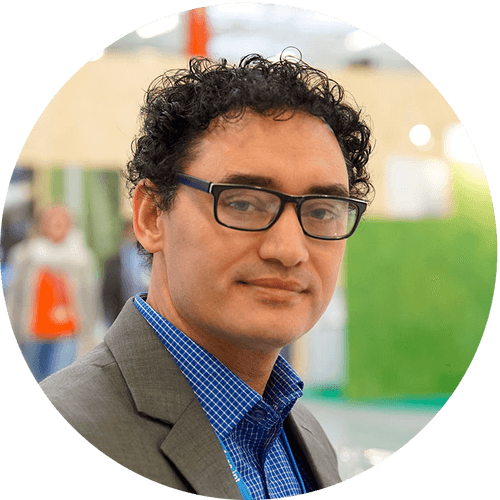
RAJU PANDIT CHHETRI
Raju works in the field of environment and development with over fifteen years of work experience in different organizations. Currently, he leads a Kathmandu based Nepali organisation, the Prakriti Resources Centre (PRC), that promotes climate justice and sustainable development. Raju closely follows international climate change negotiations under the United Nations Framework Convention on Climate Change and the Green Climate Fund. He supports the Least Developed Countries Group in climate finance matters at the UNFCCC negotiations and advises the LDC Board Members of the Green Climate Fund (GCF). He is also a Climate Finance Technical Committee member in the Ministry of Finance, Nepal. Raju co-chairs the finance working group of the independent Global Stock Take (iGST). He has written and contributed to several papers on climate change, climate finance and loss and damage.

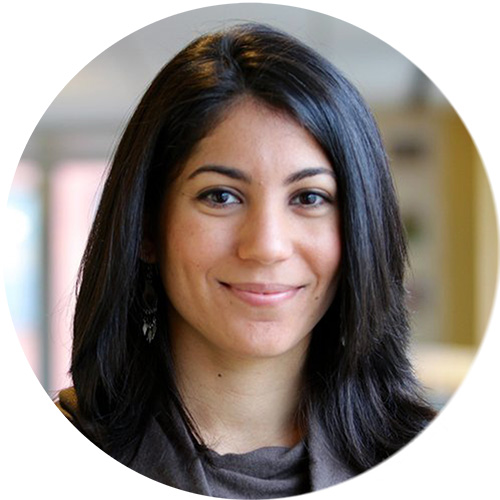
Ayesha Dinshaw
Ayesha is the Loss and Damage Program Officer at the Climate Justice Resilience Fund. She manages a $6 million portfolio of loss and damage grants that centers the lived experiences of marginalized communities. Based on this portfolio, she supports learning and advocacy at the international level. Prior to working at CJRF, Ayesha was a Manager at the World Resources Institute where she spent 12 years working on research and policy focused on adaptation and resilience.

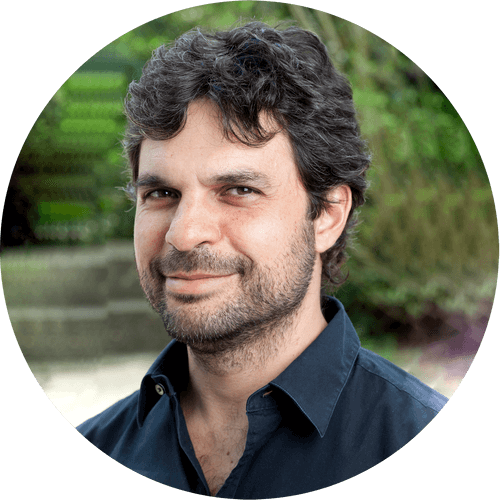
EDGAR FERNÁNDEZ FERNÁNDEZ
Edgar is an environmental and Earth System lawyer and researcher with vast experience in UNFCCC negotiations. Before assuming his current role as senior associate with Transforma, where he works in the Global Stocktake team, Edgar worked for three years as advisor on adaptation and Loss and Damage for the Independent Alliance of Latin America and the Caribbean (AILAC). He was also a negotiator for Costa Rica and AILAC from COP21 to COP25, including as lead negotiator on the modalities and procedures of the Paris Agreement Implementation and Compliance Committee (PAICC) and negotiator on the operationalization of the Local Communities and Indigenous Peoples Platform and on different negotiation tracks related to ambition. He is currently an Alternate Member of the PAICC. Edgar is also an associate researcher with the University of Rennes, France, and research fellow of the Earth System Governance Project.

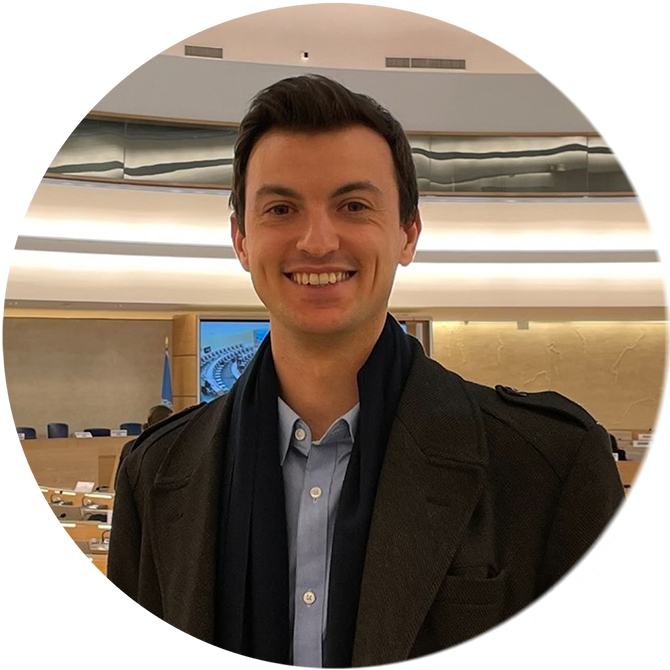
Nicolas Gaulin
Nicolas (he/il) is a Global Coordinator of the Loss and Damage Youth Coalition, and previous Executive Coordinator of the BCCIC Climate Change Branch. He also sits on Youth and Environment Europe's Youth Scientific Advisory Board. He holds an MSc in Environmental Sciences from Wageningen University and has co-published several papers and articles on fossil fuel constraint measures and policies. He is particularly interested in the intersection between loss & damage, fossil fuels, and plastics, and in Arctic issues.


Ineza Umuhoza Grace
Ineza is an Eco-Feminist impact-driven actor dedicated to the elevation of the frontline voices (developing countries, women, youth, children, marginalised communities) for their needs and concerns to be reflected in the global efforts for the protection of the planet and its people. In 2017, she founded The Green Protector, a Rwandan-based NGO In 2020, she co-founded the Loss and Damage Youth Coalition. Ineza is an environmental engineer from the National University of Rwanda, and from 2018, she has been engaged in the UNFCCC process with a primary focus on "loss and damage".

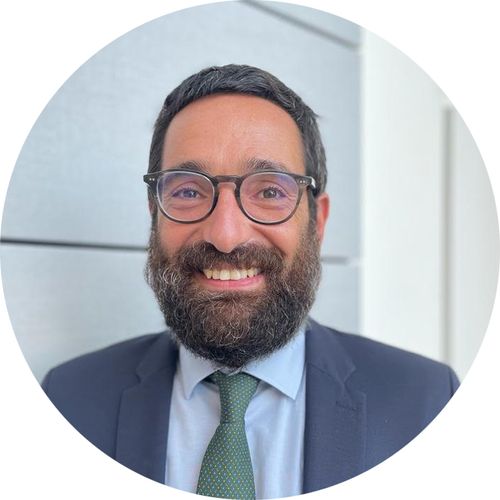
LORENZO GUADAGNO
Lorenzo coordinates the Project "Avert, Minimize and Address Displacement Related to the Effects of Climate Change" with the Secretariat of the Platform on Disaster Displacement. He has been working and writing on Disaster Risk Reduction, Displacement and Migration for over 15 years with international organisations, non-governmental organisations and academic institutions. He can be reached at lorenzog@unops.org

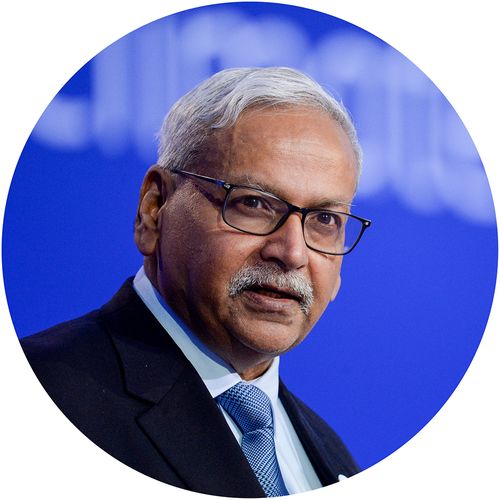
SALEEMUL HUQ
Professor Huq was the Director of the International Centre for Climate Change and Development (ICCCAD) and Professor at the Independent University Bangladesh (IUB) as well as Associate of the International Institute on Environment and Development (IIED) in the United Kingdom. In addition, he was the Chair of the Expert Advisory Group for the Climate Vulnerable Forum (CVF) and also Senior Adviser on Locally Led Adaptation with Global Centre on Adaptation (GCA) headquartered in the Netherlands. Saleem sadly passed away in late 2023. His work has been instrumental in shaping Loss and Damage over the past decade and he is greatly missed. Along with his roles as a researcher and academic, Saleem was a visionary thought leader, an innovator and a rebel. We are committed to carrying on his legacy and hope he would be proud of the work we are doing.

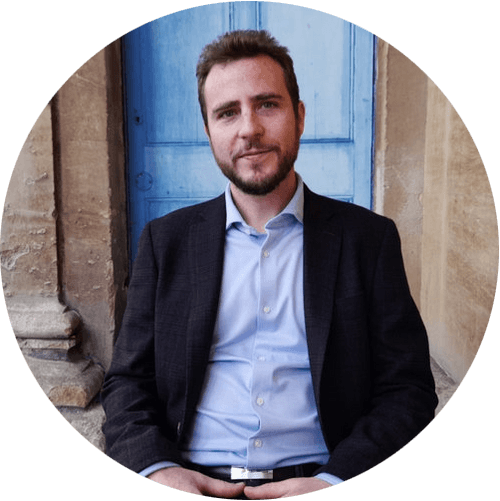
GUY JACKSON
Guy is a human geographer, based at the Lund University Centre for Sustainability Studies, Sweden, exploring the drivers of vulnerability in socio-ecological systems. Guy is currently working on the project Recasting the Disproportionate Impacts of Climate Change Extremes at LUCSUS. Guy’s current research explores people’s experience of loss, adaptation, and immobilities. Underlying this research is an interest in understanding the (re)production of vulnerability at different spatial and temporal scales. This research seeks to further our understanding of loss and damage by using an intersectional lens and transdisciplinary approaches.

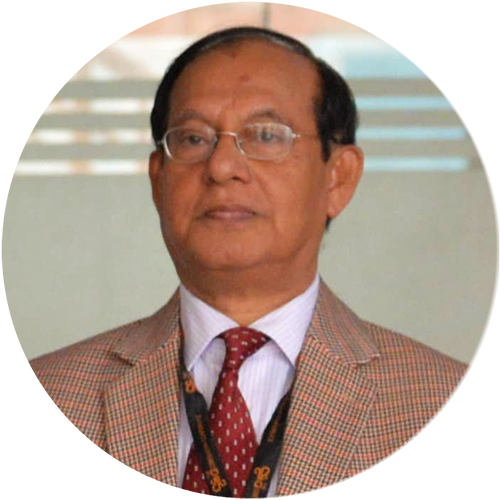
MIZAN KHAN
Professor Khan, Ph.D. is an independent consultant and the technical lead of the LDC Universities' Consortium on Climate Change (LUCCC), a programme of the governments of the 46 least developed countries. He was formerly Deputy Director at the International Centre for Climate Change and Development (ICCCAD) and a professor at Independent University, Bangladesh and North South University. He has held visiting positions at Brown University, University of Manitoba, Université de Poitiers, University of Maryland, and Calcutta University. For over two decades, he has served as Bangladesh’s lead climate finance negotiator. His research on Loss and Damage focuses on mobilising finance at the scale of the needs and he has authored numerous publications and three books on climate change economics, politics, and adaptation.

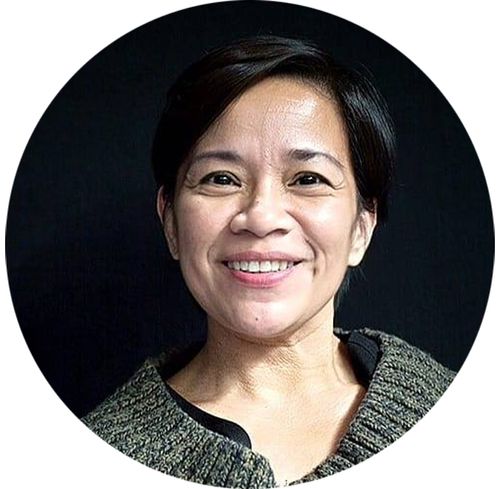
TETET LAURON
Tetet is an activist and development worker with almost 30 years’ experience in multidisciplinary and multi-cultural settings at grassroots, national, regional and international levels. She works on different development issues and themes, but is most passionate about climate justice. Tetet strives to make the climate negotiations on finance, particularly loss and damage finance, accessible to a broader audience as a contribution to growing stronger global movements for climate justice.


CHIARA LIGUORI
Chiara is Senior Policy Adviser for Climate Justice at Oxfam Great Britain, where she focuses mostly on loss and damage and climate finance. She has been working on climate justice for almost a decade, particularly at the intersection of climate change and human rights. She has a background as a political scientist, and previously worked for many years for Amnesty International and the UN.

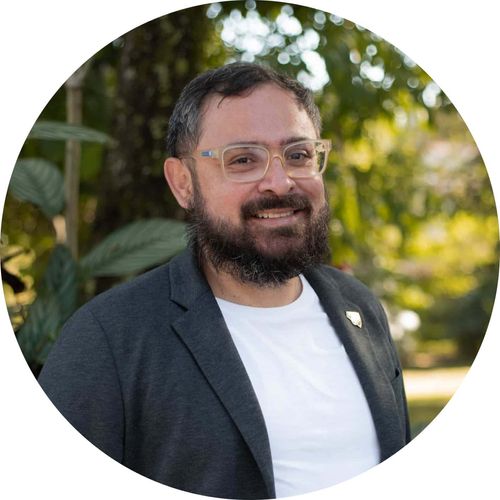
ADRIÁN MARTÍNEZ
MA. Adrián is the Director and founder of La Ruta del Clima. Alexander von Humboldt - ICC Alumni. PhD candidate at the University of Eastern Finland. Master in Environment, Development and Peace. Researcher and consultant on public participation, human rights, loss and damage, and international climate law.

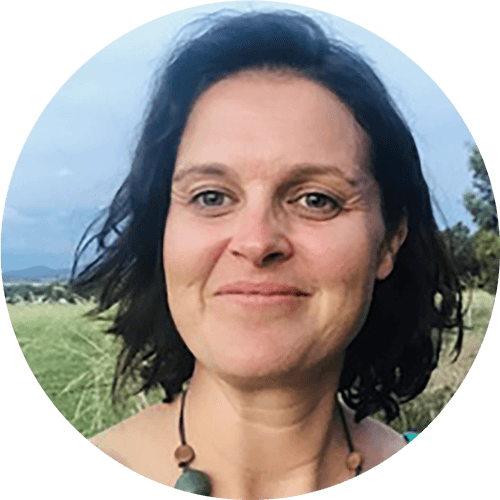
KAREN MCNAMARA
Karen, of the University of Queensland Australia, is a development geographer interested in how livelihoods can be enhanced to respond to the triple crises of poverty, disaster risk and climate change; with extensive experience working throughout the Asia-Pacific.

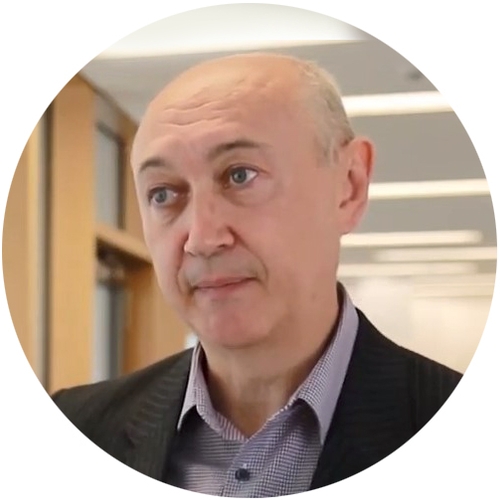
COLIN MCQUISTAN
Colin is the Head of Climate and Resilience Team in the Influence, Impact and Innovation directorate at Practical Action. He is responsible for Practical Action’s global development work ensuring that they are not only adapting to the challenge of climate change and reducing risk, but that this is done in a way that builds the resilience of current and future populations. Before Colin joined Practical Action, he was the Senior Adviser, Agriculture and Climate Change at Oxfam GB.

-p-500.png)
SABINE MINNINGER
Sabine is a Senior Policy Advisor on Climate Change with the German aid agency, Bread for the World dealing with climate change and development issues. For 16 years she has been following the UNFCCC process together with partner organizations from the Global South calling for climate justice. She is highly involved in the work on addressing climate induced loss and damage and climate-induced migration with a special focus on the small island development states such as Tuvalu. Sabine is a founding member of the Loss and Damage Collaboration, she substantially supported the work from the beginning and helped to get the Loss and Damage Youth Coalition (LDYC) started.

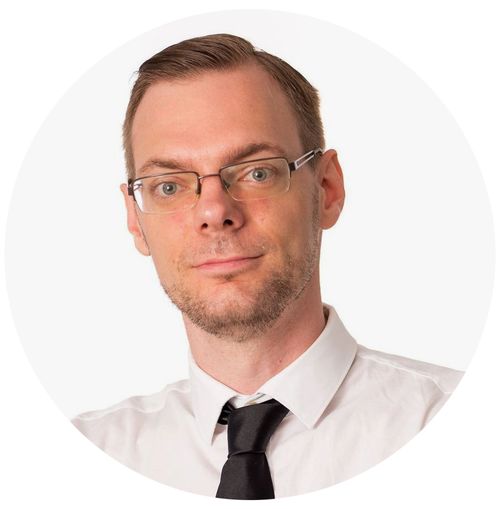
DENNIS MOMBAUER
Dennis works as Director of Research & Knowledge Management at SLYCAN Trust, a non-profit think tank focused on climate change adaptation, resilience-building, and Loss and Damage. He covers a range of topics related to loss & damage including risk management, climate finance, and human mobility. Dennis is a member of several international networks and expert groups and a regular contributor to national and international media outlets.

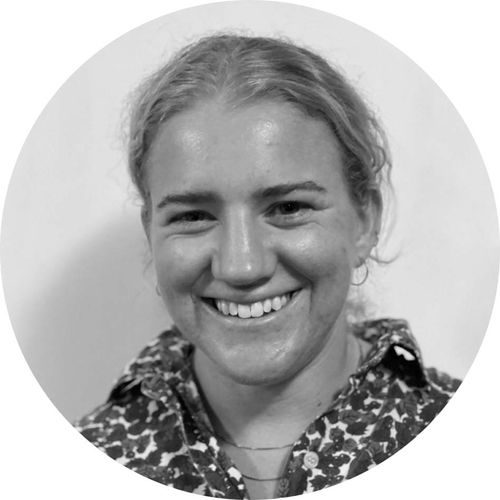
CAMILLA MORE
Camilla is an Australian lawyer who has been following the UN climate negotiations closely since 2017. She works inInternational Institute for Environment and Development (IIED)’s Global Climate Law, Policy and Governance Team to support the Least Developed Countries Group achieve equitable and ambitious outcomes in UN climate negotiations, particularly those related to loss and damage. Camilla passionately hates jargon, but sometimes can’t help it.

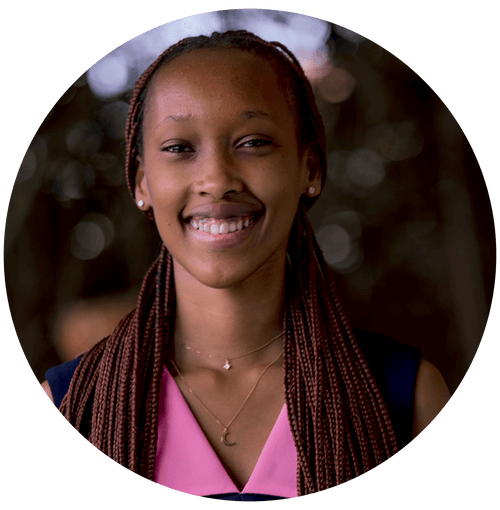
EVA PEACE MUKAYIRANGA
Eva works to advance vulnerable countries' priorities on climate finance and Loss and Damage in international policy fora. She has followed the UNFCCC negotiations since 2018 as a climate finance negotiator. In addition, she is the co-founder of the Loss and Damage Youth Coalition, where she serves as the coordinator of the training working group.

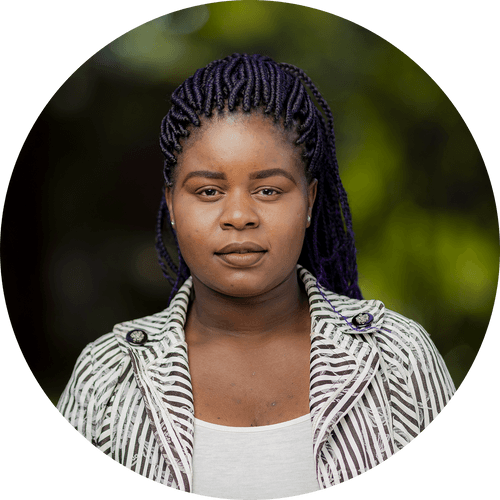
BRENDA MWALE
Brenda (she/her) is a climate change advocate with more than eight years of experience in policy advocacy, community engagement, partnerships, climate education, and intergovernmental processes. She is currently a negotiator for Malawi on Loss and Damage and coordinates the Finance Working Group of the Loss and Damage Collaboration. She has expertise in gender and youth mainstreaming and engagement. Brenda is also a farmer and uses the platform to advocate for sustainable food systems.


NUSRAT NAUSHIN
Nusrat is a researcher and currently working as the Loss & Damage Programme Coordinator at the International Centre for Climate Change and Development (ICCCAD). She has been previously engaged with the Climate Vulnerable Forum – Bangladesh Presidency. Nusrat’s research interest lies in the continuum between the notions of locally led adaptation and Loss and damage, and how locally led transformative actions are imperative to address losses and damages. Within the realm of Loss & Damage, Nusrat has and is working extensively in unearthing ways to integrate the idea of Non-Economic Loss & Damage, and how local perceptions can guide effective responses and proper utilization of finances.

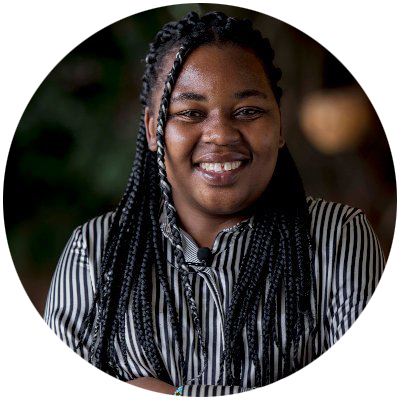
HYACINTHE NIYITEGEKA
Hyacinthe (she/her) is a water scientist with experience in the fields of Loss and Damage as well as broader climate policy. In her role, she oversees day-to-day operations, coordinates the L&DC membership and leads and supports the delivery of technical outputs—particularly related to the Warsaw International Mechanism for Loss and Damage and its Santiago Network. She also co-leads our Santiago Network project, where she drives member engagement and coordination.

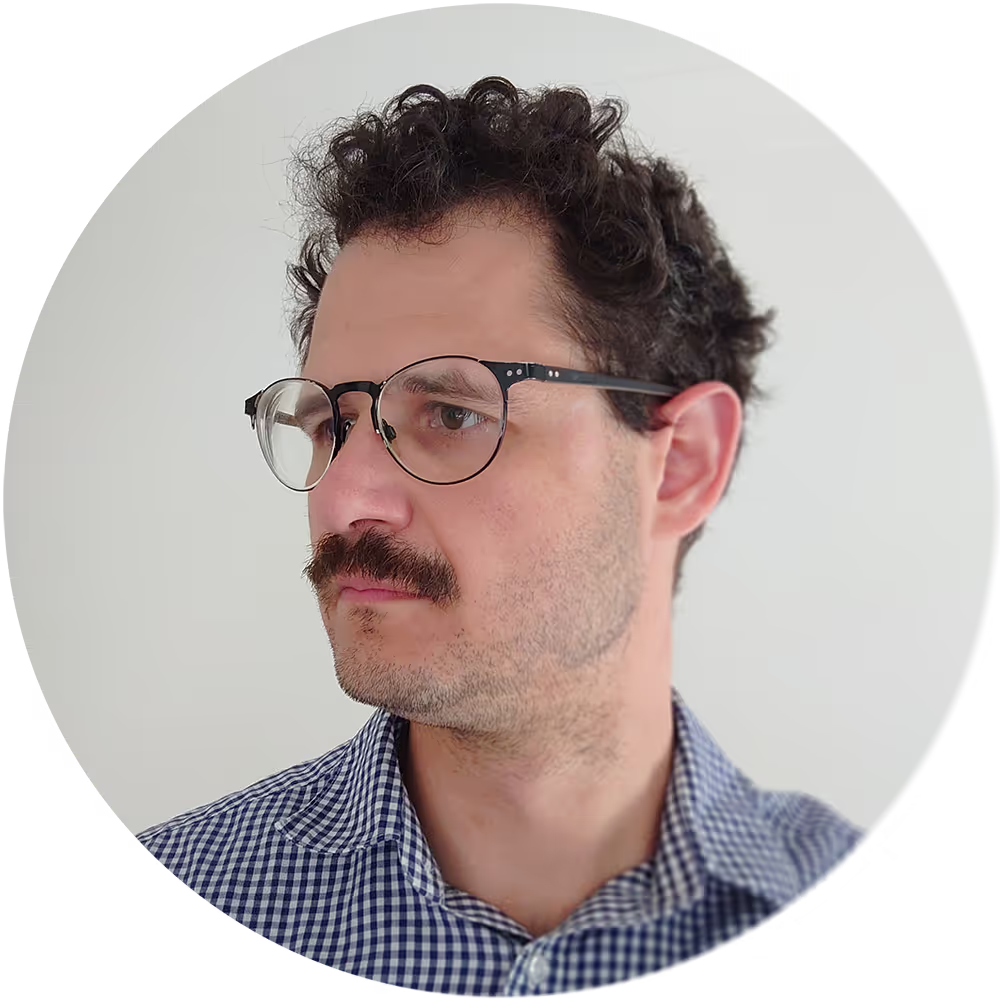
TEO ORMOND-SKEAPING
Teo (he/him) is an award winning artist, filmmaker and photographer working on projects relating to political ecology, Loss and Damage, climate-induced migration and displacement, Slow Violence and the political and cultural critique of the Anthropocene. Teo also works to coordinate the L&DC's Advocacy and Art and Culture programs and supports their communications work.


RYAN PLANO
Ryan has nearly a decade of experience working in the legal and policy sectors, including for an NGO focused on climate-related displacement, and for a boutique firm that advises Indigenous Peoples organizations in Canada. Ryan has conducted field research and authored various submissions and reports on climate change displacement, human rights and loss and damage, and he advocates for better inclusion of these issues in policy-making, including in UNFCCC negotiations. He is keenly interested in how civil society and international cooperation can improve policies and legal protections for those left out of traditional ‘solutions’ and frameworks.


Tunga Bhadra Rai
Tunga Bhadra Rai is an Indigenous researcher and anthropologist from Nepal, belonging to the Rai Indigenous Nationality. He is Director of the Climate Change Program at the Nepal Federation of Indigenous Nationalities (NEFIN), where he leads strategic initiatives on Indigenous knowledge, rights and climate policy. His research and publications focus on Indigenous worldviews, heritage and identity, climate justice and sustainable development. Internationally, he engages in UNFCCC negotiations through the Indigenous Peoples Caucus and serves on the Indigenous Peoples’ Advisory Group of the Green Climate Fund, where he contributes to shaping international climate finance mechanisms to be more inclusive and responsive to the needs and rights of Indigenous Peoples.

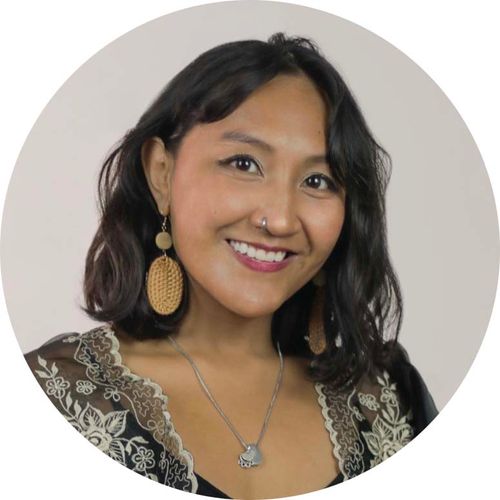
JOY REYES
Joy is a climate justice activist and lawyer working with indigenous peoples, youth climate activists, and women environmental defenders. She is currently a Policy Officer with the Grantham Research Institute working on climate law and evidence, a Technical Advisor of the Klima Center of Manila Observatory, a Staff Lawyer at the Legal Rights and Natural Resources Center (Friends of the Earth Philippines), and a Research Assistant at the University of Warwick on critical climate finance and equitable policy. Her work revolves around climate litigation, loss and damage, human and environmental rights, and reparations, with a feminist and decolonial lens. She is passionate about climate education and making climate concepts accessible to the wider public. When not working on climate policy, she goes for long runs, teaches yoga and environmental law, goes freediving, or climbs rocks.

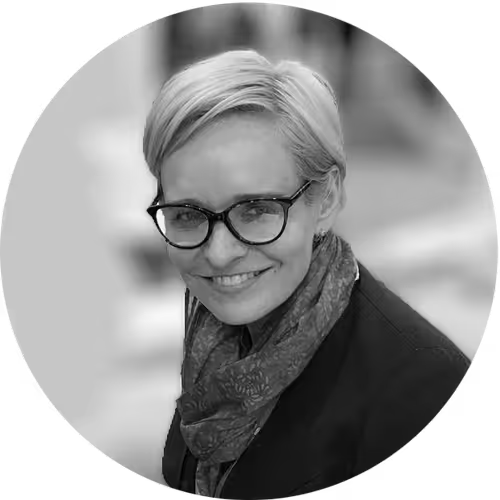
ERIN ROBERTS
Erin (she/her) is a climate policy researcher who has worked on both adaptation and Loss and Damage, with a particular focus on supporting developing countries in the UNFCCC negotiations. She has degrees in biology, international relations and international development with a PhD on the way in which leadership shaped the evolution of Loss and Damage policy in Bangladesh. Erin continues to ponder the role of leadership in scaling up climate action on all fronts. In every aspect of her work she endeavours to empower young climate leaders from the global South including through her role supporting the amazing team at the Climate Leadership Initiative.

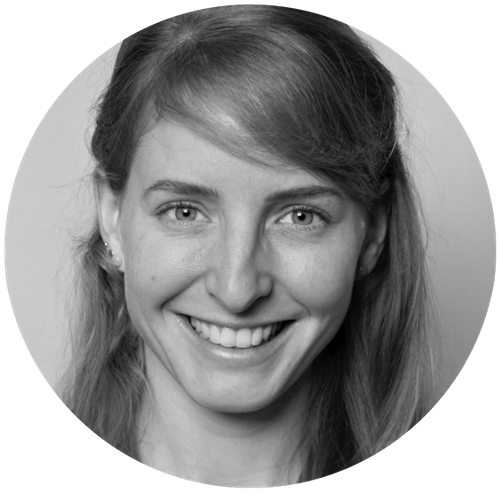
LAURA SCHÄFER
Laura is a political scientist and a senior advisor for climate risk management with the environmental and development organization Germanwatch. Laura has over 10 years of experience in developing strategies, ideas and research focused on the nexus of resilience building to deal with climate change impacts, climate finance and climate justice. Her current policy and think tank work concentrates on developing adequate solutions to address loss and damage in the international climate policy process that respond to the needs of those on the frontline of climate change, following a human rights-based approach. Laura is also a co-author of the Climate Risk Index and the coordinator of the Working Group on Adaptation and Loss and Damage of the Climate Action Network.

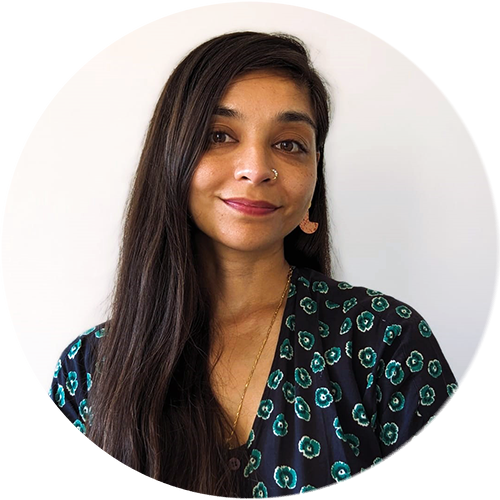
SINDRA SHARMA
Sindra (she/her) has a background in psychology, cognitive neuroscience, economics and international development. She holds a PhD from the London School of Economics. Hailing from Fiji, her work has always centred on climate justice with a focus on Small Island Developing States (SIDS) and developing countries. She has contributed to the climate dialogue by advising SIDS negotiators and working with Civil Society to advance climate justice narratives in policy discussions and broader contexts, approaching loss and damage in a holistic and integrated manner. Her roles include advisor to the COP23 Presidency Chief Negotiator, Global Policy Lead at Climate Action Network (CAN) International, and Senior Policy Advisor at Pacific Islands CAN. She is also a technical expert for the L&DC.

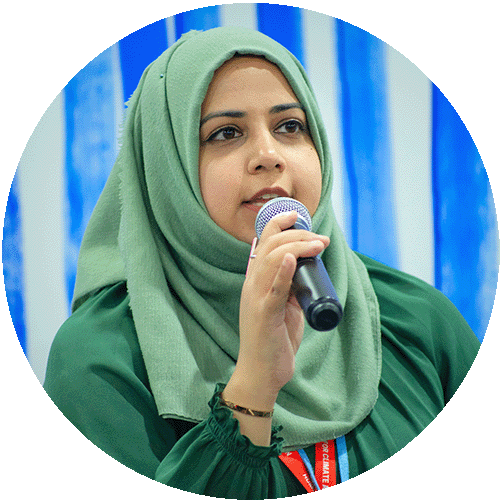
ZOHA SHAWOO
Zoha is a technical expert within the Secretariat of the Fund for Responding to Loss and Damage, and is conducting research to help design and inform the structures and modalities of the Fund's start-up phase. Prior to this, Zoha was co-leading research on loss and damage finance at the Stockholm Environment Institute, providing policy-relevant recommendations on how best loss and damage finance can serve the needs and priorities of vulnerable communities. Zoha has a background in international climate policy and climate justice.

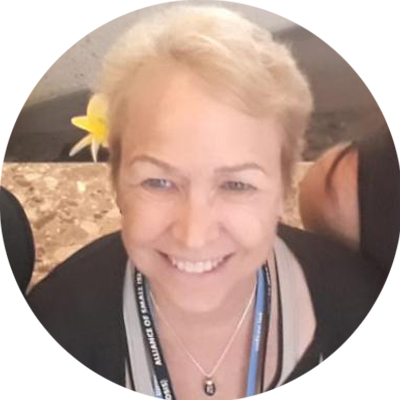
LINDA SIEGELE
Linda, JD LLM, is an environmental lawyer and independent consultant. She has been involved in the United Nations climate change negotiating process since 2005 with a special focus on the issues of adaptation and loss and damage associated with the adverse effects of climate change in developing countries. Linda is particularly familiar with the climate change concerns of small island developing states and least developed countries, having directly supported country delegations through the provision of relevant technical and strategic legal and policy advice. Linda has been a member of the WIM ExCom's Technical Expert Group on Comprehensive Risk Management since 2019.


Harjeet Singh
Harjeet Singh is an activist advocating for climate and social justice globally. He is the Founding Director of the Satat Sampada Climate Foundation and Global Convenor of the “Fill The Fund” campaign. He specialises in advancing just transitions, strengthening adaptation and resilience programmes, and addressing climate impacts and migration. Harjeet also serves as the Strategic Advisor to the Fossil Fuel Non-Proliferation Treaty Initiative. Previously, he served as the Head of Global Political Strategy at Climate Action Network (CAN) International and led ActionAid’s global climate justice programme. Harjeet has also held board positions at CAN International and the Global Network of Civil Society Organisations for Disaster Reduction (GNDR). Currently, he is a member of the United Nations’ Technical Expert Group on Comprehensive Risk Management, under the Warsaw International Mechanism for Loss and Damage. Harjeet has authored and overseen numerous publications on climate justice and disaster resilience.

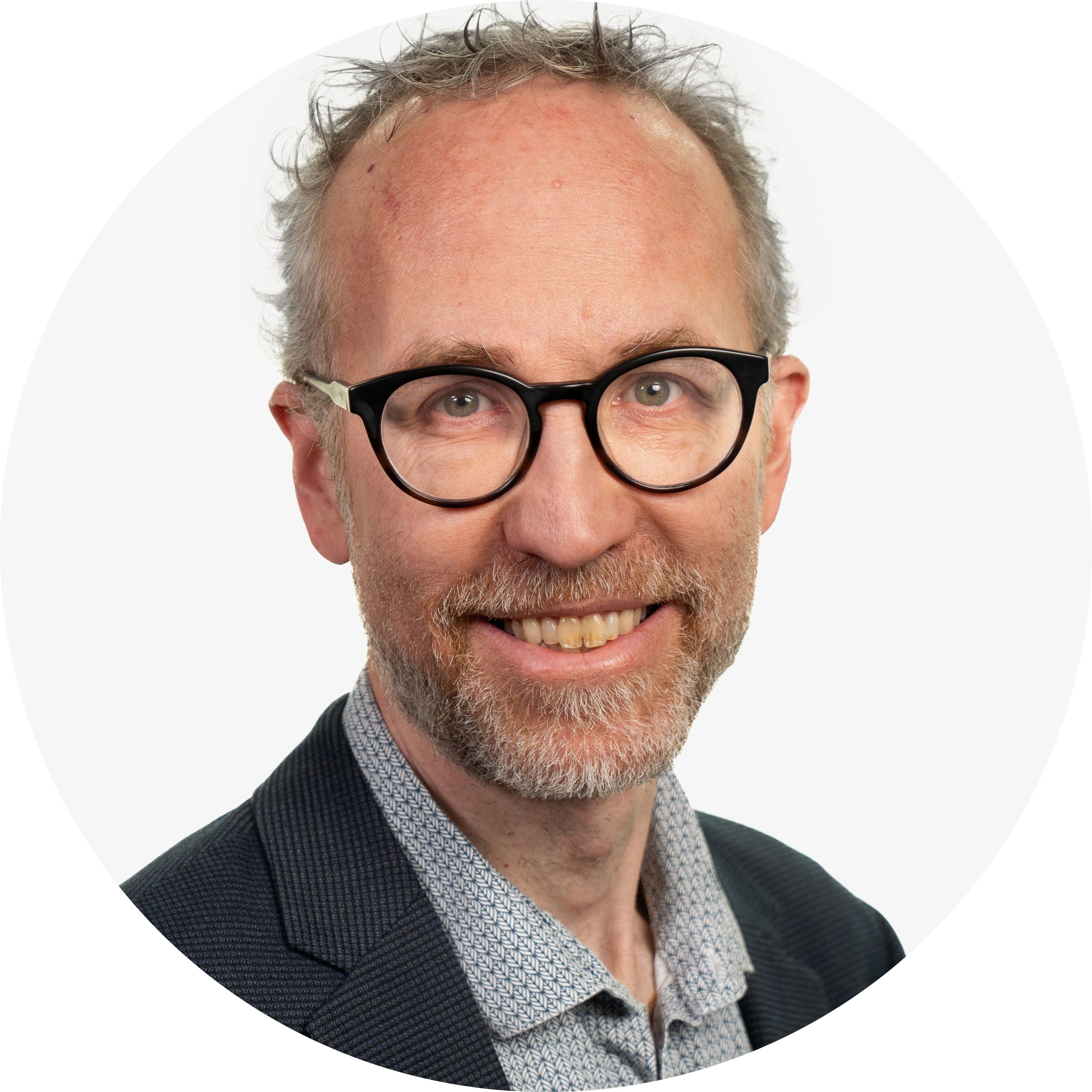
MATTIAS SÖDERBERG
Mattias is working as Chief advisor in the Danish NGO, DanChurchAid, and is Co-Chair of the Climate Justice Group of the global ACT Alliance. Coming from an organisation engaged in both humanitarian aid and long term development on the ground in a number of developing countries, he has followed the international climate debate for more than a decade. Mattias is an active voice in the debate about Loss and Damage, and has contributed to a number of related research initiatives.

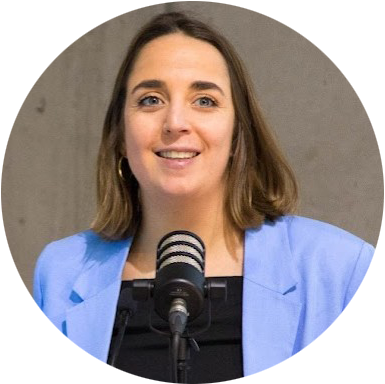
REBECCA THISSEN
Since September 2023, Rebecca has been the Global Lead of Multilateral process at Climate Action International (CAN-I). She is working on the transversal issue of transforming the financial system, both inside and outside the UNFCCC and follows other multilateral processes closely to ensure that climate justice and equity are part of the agenda. She was previously a climate justice policy officer at CNCD-11.11.11 (National Centre of Development Cooperation in Belgium). There, she was, among other things, appointed as a technical expert to support Wallonia in its commitment to finance Loss and Damage. She worked closely with Global South partners to build campaigns and strategies, especially around the COPs. Rebecca has been attending COPs every year since 2018 as a member of the official Belgian delegation to the UNFCCC. This experience made her an expert in climate negotiations and made her understand the importance of civil society within them.

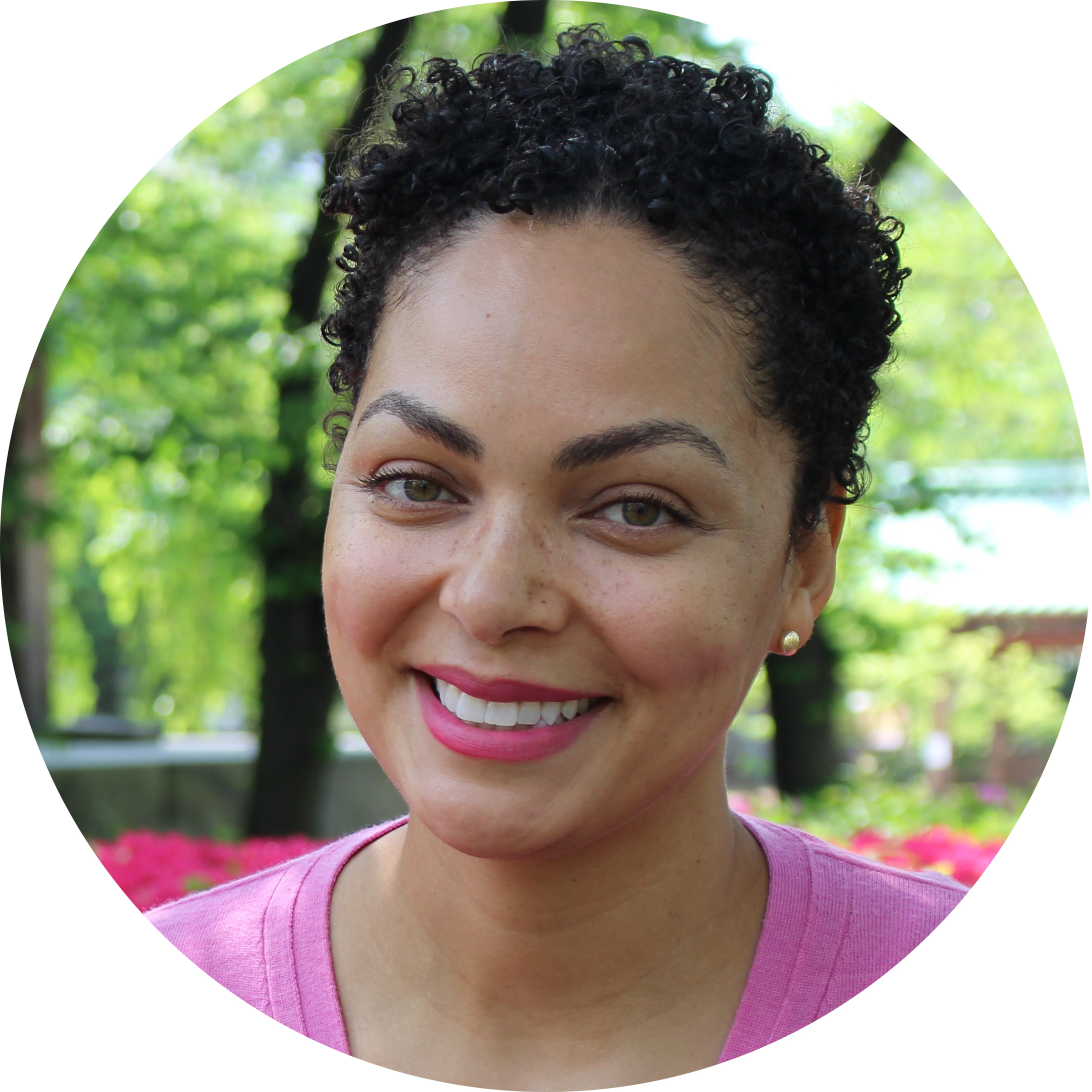
ADELLE THOMAS
Dr. Thomas is the adaptation Lead at the Natural Resources Defence Council and the vice-chair of the IPCC’s Working Group II. As a human-environment geographer, her research has focused on adaptation, Loss and Damage and vulnerability of Small Island Developing States (SIDS) to climate change. Dr. Thomas has worked for over fifteen years on intersections between climate change adaptation, disaster risk management and sustainable development. She has authored a variety of academic publications and has also served as a Lead Author on several Intergovernmental Panel on Climate Change (IPCC) reports including the Special Report on Global Warming of 1.5C, the Fifth Assessment Report and the Sixth Assessment Report, focusing on key risks across regions and sectors and limits to adaptation.

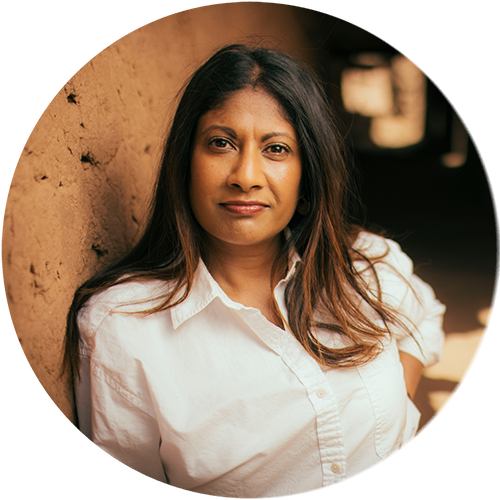
AMALI TOWER
Amali is the Founder and Executive Director of Climate Refugees. She has extensive global experience in refugee affairs, forced migration and displacement with NGOs, the UN Refugee Agency and the US Refugee Admissions Program. Years of interviewing refugees fleeing conflict allowed her the chance to hear their stories of also fleeing climate change. Through this, Climate Refugees was born. She conducts research in climate displacement contexts globally. Her work has informed numerous UN reports on displacement and loss and damage, including case studies presented as evidence of loss and damage at COP26 and COP28. She is a frequent public speaker, member of the World Economic Forum Expert Network in Migration, Human Rights & Humanitarian Response and contributes to numerous working groups. She sits on the advisory board of The Center for Climate and Security in Washington D.C.

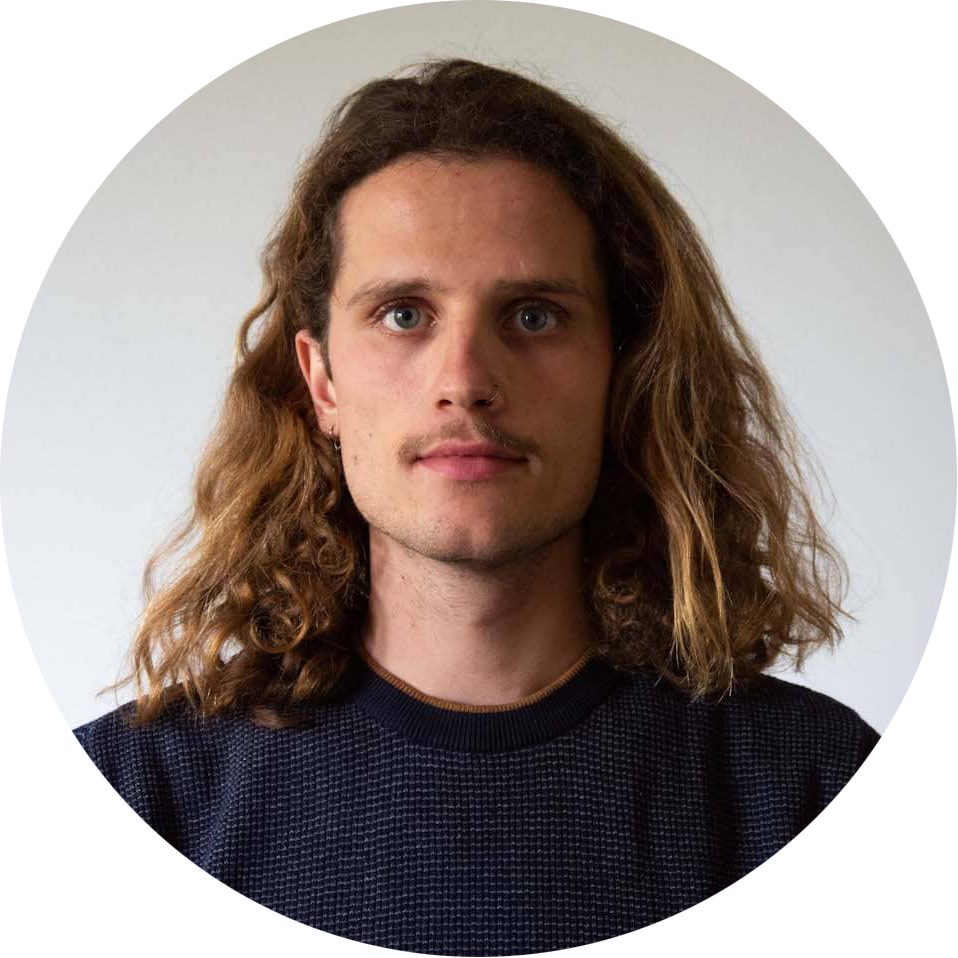
DOUWE VAN SCHIE
Douwe is a researcher focussing on on-the-ground experiences of loss and damage. He does this in collaboration with the International Institute for Environment and Development (IIED) and International Centre for Climate Change and Adaptation (ICCCAD). Initially, Douwe focussed on non-economic impacts. However, he has shifted to a values-based approach which unifies the concepts of economic and non-economic loss and damage.

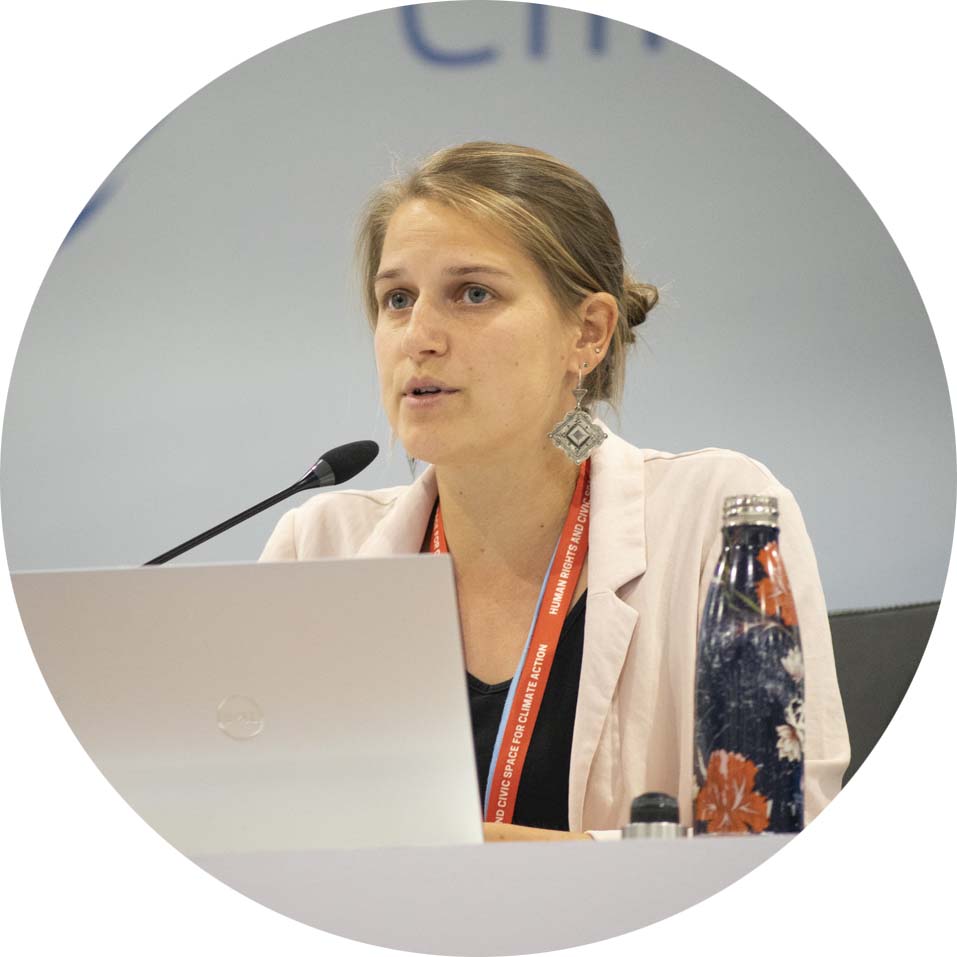
LIEN VANDAMME
Lien Vandamme is a Geneva-based Senior Campaigner for Center for International Environmental Law (CIEL)’s Climate and Energy Program. Lien contributes to CIEL’s work on human rights and climate change, in particular, related to redress for climate harm or loss and damage. She co-facilitates the Human Rights and Climate Change Working Group, convening civil society organisations, Indigenous Peoples representatives and other experts advocating for the promotion and respect of human rights in climate action, and focuses on the UN climate change regime and the implementation of the Paris Agreement.

.png)
LYNDSAY WALSH
Lyndsay works for Oxfam Australia as the climate justice strategic lead , where a lot of her work has focused on loss and damage advocacy both in Australia and internationally. Her projects to date have mainly been around building the evidence base for why loss and damage finance is needed, supporting youth and people from the global south in climate negotiations, and in understanding how loss and damage and humanitarian action fits together.

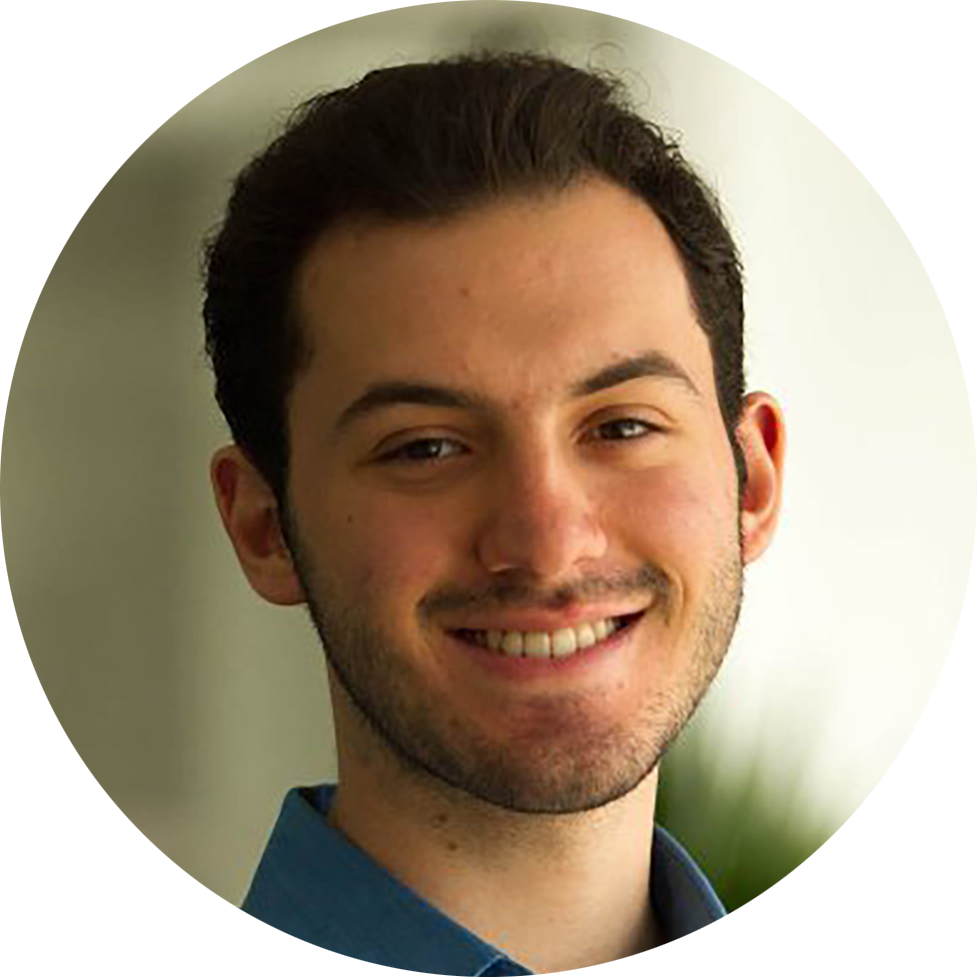
NATANIEL WARSZAWSKI
Nate is a Research Associate for the World Resources Institute’s Climate Program supporting the International Climate Action Team. He focuses on climate justice at the international level. In his role, he provides research and analysis on issues relating to the UNFCCC, the Paris Agreement, and its implementation. Nate also co-leads the Allied for Climate Transformation By 2025 (ACT2025) Consortium, which convenes key stakeholders to identify and agree on how to design just and ambitious outcomes at UN climate negotiations. He also helps lead WRI’s work on loss and damage with particular focus on the UNFCCC negotiations process. Nate has served on a few other teams across the Institute, including the NDC Partnership, the Global Commission on Adaptation, the Gender & Social Equity Initiative, and the Governance Center. Prior to joining WRI, Nate worked for a DC-based international development firm.

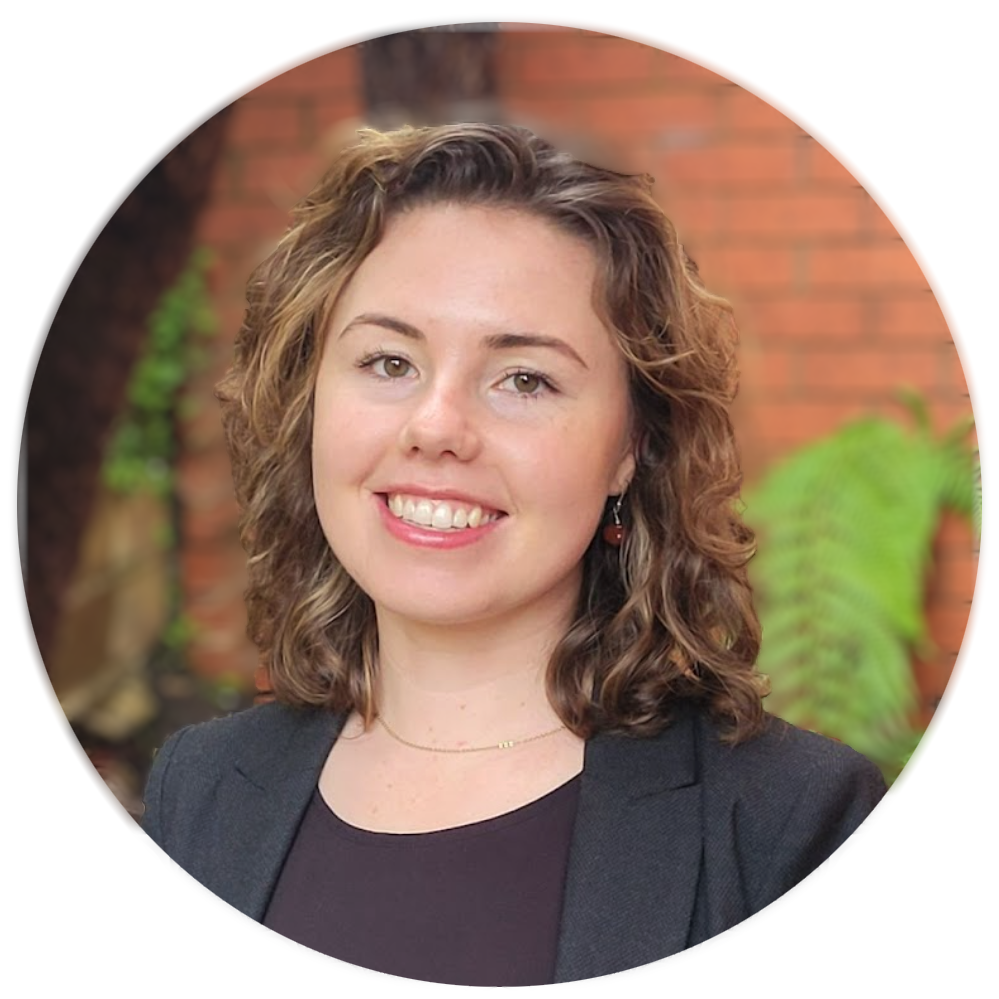
HEIDI WHITE
Heidi is an Australian lawyer, climate justice advocate and leading expert on Loss and Damage. As an independent consultant, she combines legal knowledge and a strategic and collaborative approach, working with a range of stakeholders to advance equitable and ambitious outcomes. Heidi advises developing countries across key Loss and Damage bodies, co-leads our Santiago Network Project and mentors young negotiators from developing countries, who she considers critical drivers of change.

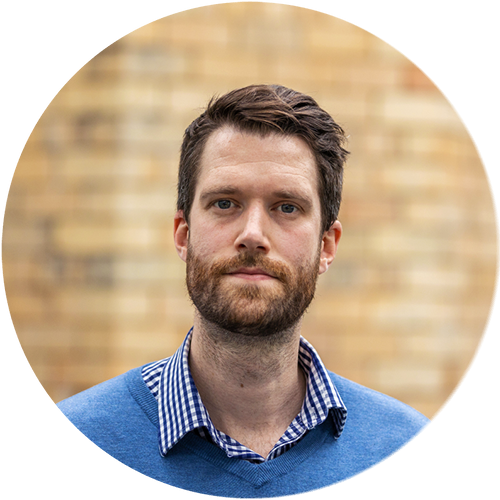
BEN WILSON
Ben is Director of Public Engagement at SCIAF, which he joined in 2017 and served as Policy Officer then Partner Advocacy Officer until becoming Advocacy Manager in 2023. Ben has a range of experience with international NGOs including Xchange Scotland, Challenges Worldwide and WaterAid, with particular experience in advocacy, research and communications. He holds a PhD from the University of Glasgow in sociology and is a trustee of Scotland’s International Development Alliance and Stop Climate Chaos Scotland. Ben is responsible for overseeing SCIAF’s political influencing work, fundraising, communications, development education and supporter engagement, including our relationships with schools and parishes.

